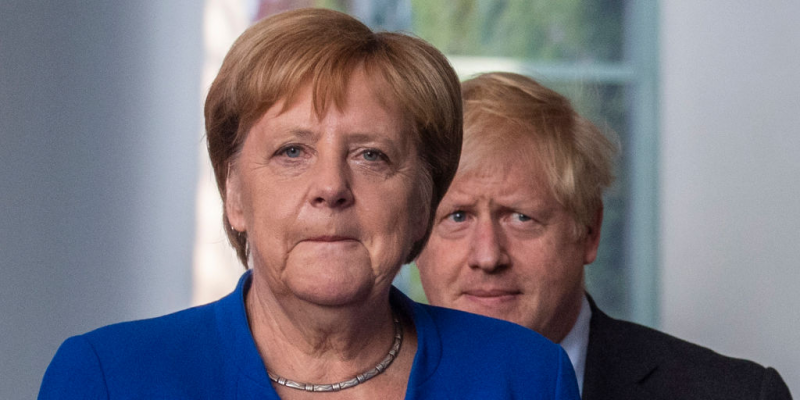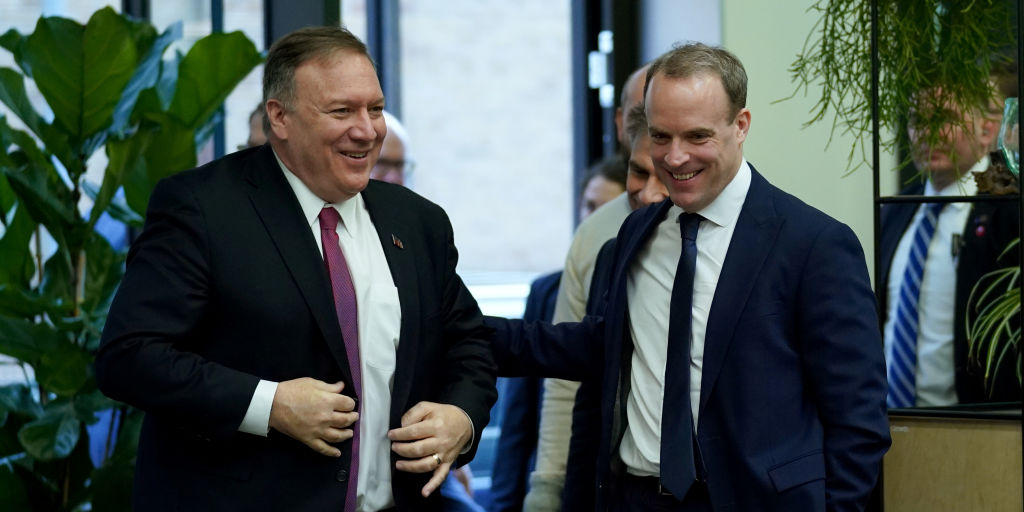- Secretary of State Mike Pompeo tells an event in London that the Trump administration will not end its intelligence-sharing relationship with the UK despite the country signing a deal with Huawei.
- President Trump’s allies had warned the UK that allowing the Chinese telecoms company a role in developing the country’s 5G network would jeopardise the continuation of the Five Eyes partnership.
- However, Pompeo said that the Five Eyes agreement would remain.
- Pompeo also rowed back from reported threats over the impact on a post-Brexit trade deal with the US, saying the UK would be “at the front of the line” for a US trade deal.
- Visit Business Insider’s homepage for more stories.
The Trump administration has abandoned its threat to cut intelligence ties with the UK after Prime Minister Boris Johnson defied the President by allowing Huawei to develop the country’s 5G network.
The President and his allies had warned the UK that the future of its intelligence-sharing relationship with the US would be at risk if it took the “momentous decision” to allow the Chinese telecoms company a role in the UK’s communications infrastructure.
A delegation of US government officials warned their counterparts in advance of Johnson’s decision that “Donald Trump is watching closely.”
However, speaking in London on Thursday, Secretary of State Mike Pompeo said the so-called Five Eyes relationship would remain, despite the deal.
"That relationship is deep, it is strong, it will remain," he told an event alongside the UK Foreign Secretary Dominic Raab.
Pompeo said that while Chinese Communist Party remained "the central threat of our time," and the deal with the UK risked handing them a "front door" to Western communications, he said that the US would find a way to make the relationship work.
"I am very confident that our two nations will find a way to work together to resolve this difference," Pompeo told the event, hosted by the UK think-tank Policy Exchange.
Threats by Trump's allies that the Huawei deal might restrict the UK's chances of signing a post-Brexit deal with the US, were also rowed back by Pompeo, who told the event that Britain would be at "the front of the line" for a deal.
'The biggest strategic defeat for the United States since the early days of World War II.'

Trump's decision to withdraw his threats to the UK paves the way for other European allies to give the green light to Huawei.
Trump has previously warned his European allies that they must impose a blanket ban on Huawei's 5G involvement.
Politico reported on Wednesday that European countries are set to follow a similar policy on Huawei to the UK.
The European Union has drawn up recommendations for member states that stop short of banning Huawei.
"The EU's approach was inspired by the UK one," an EU diplomat told Politico, adding that Trump's call for a blanket ban "won't be the preferred choice for most" European countries.
Individual countries across the continent are likely to follow the UK's lead and allow Huawei a role in their future 5G networks, despite being on the end of intensive lobbying efforts from the Trump administration.
Germany, Poland, and the Netherlands are leaning toward allowing Huawei a role in future telecoms networks, while the French government confirmed in November that it was "not following the position of the United States" and refused to exclude Huawei from bidding for its 5G network.
Newt Gingrich, a former speaker of the US House of Representatives, on Wednesday branded the development "the biggest strategic defeat for the United States since the early days of World War II."
"I think people have got to wake up and understand this is a huge failure of our government bureaucracies to respond to a challenge we've seen coming," he told the BBC.
